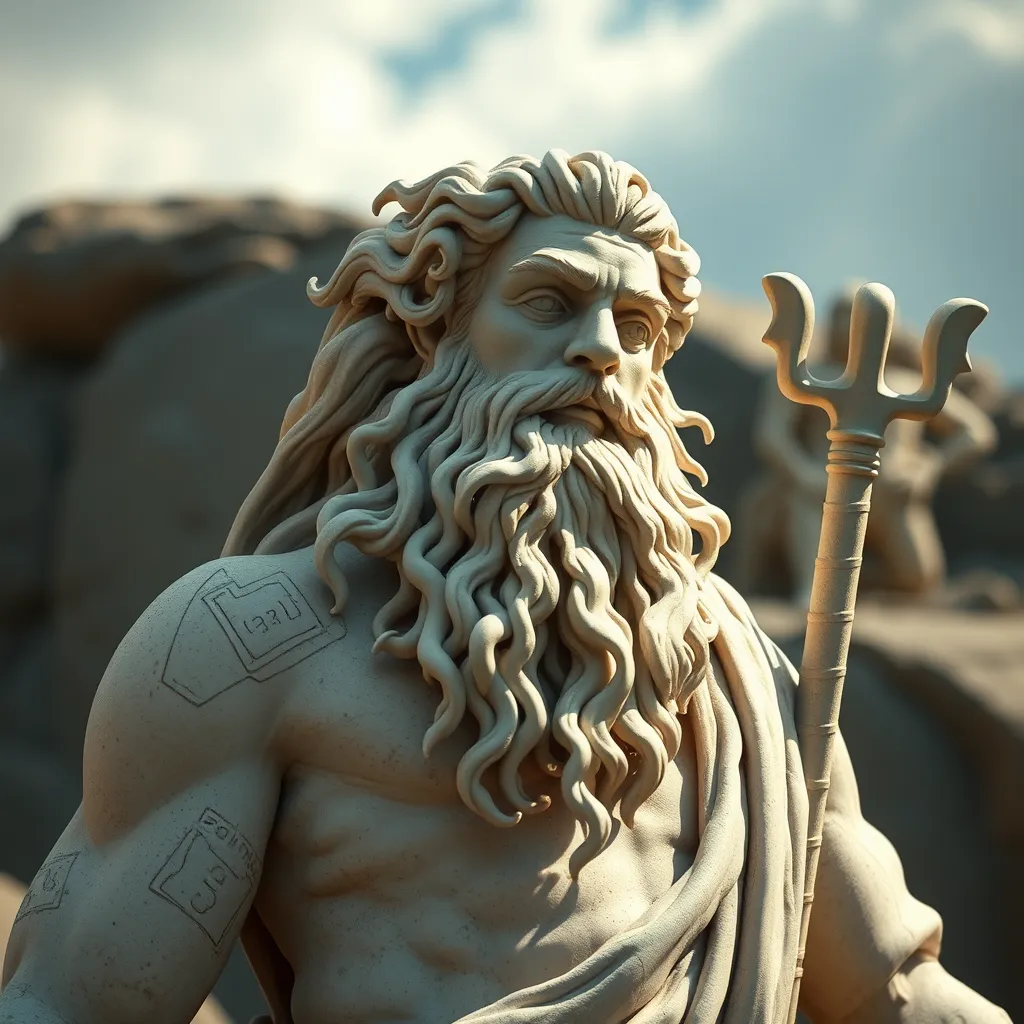Zeus in Modern Culture: References in Literature and Film
I. Introduction
Zeus, the king of the gods in Greek mythology, has captivated the imagination of countless generations. Known for his thunderbolt and regal demeanor, he symbolizes power, authority, and the complexities of human nature. As a central figure of the Greek pantheon, studying Zeus’s relevance in modern culture offers insights into how ancient myths continue to shape contemporary narratives. This article aims to explore the various literary and film references to Zeus, illustrating his enduring legacy and evolving interpretations.
II. The Legacy of Zeus in Classical Literature
Zeus’s presence in ancient texts is monumental, featuring prominently in works such as Hesiod’s “Theogony” and Homer’s “Iliad.” In these classical narratives, he is depicted as a ruler who maintains order and justice among gods and mortals. As time progressed, the image of Zeus transitioned from a powerful deity to a more complex character embodying both benevolence and wrath. These shifts have paved the way for modern interpretations, where Zeus is often revitalized through new narratives and contexts.
III. Zeus in Modern Literature
In contemporary literature, Zeus appears in various genres, often reimagined to resonate with modern audiences. Here are some notable examples:
- Fantasy Genres:
- Rick Riordan’s “Percy Jackson & The Olympians” series features Zeus as a major character, showcasing his role as the god of lightning and king of the gods in a modern setting.
- In Neil Gaiman’s “American Gods,” Zeus is part of a larger pantheon struggling to survive in a world that no longer believes in them.
- Young Adult Literature:
- In “The Last Olympian,” part of the same series by Riordan, Zeus’s character is explored through the lens of his relationships with other gods and demigods.
- Books like “The Goddess Test” by Aimee Carter reinterpret Zeus’s traits, focusing on themes of love, sacrifice, and the burdens of divinity.
These portrayals reflect not only the character of Zeus but also the thematic significance of power, responsibility, and the moral dilemmas faced by figures of authority.
IV. Zeus in Film and Television
Zeus’s cinematic portrayals vary widely, from animated features to action-packed blockbusters. Some iconic films include:
- Disney’s “Hercules”: In this animated classic, Zeus is depicted as a loving father who plays a crucial role in his son Hercules’s journey, emphasizing themes of family and heroism.
- “Clash of the Titans” and its remakes: Zeus is portrayed as a powerful and often conflicted deity, showcasing the struggles between gods and mortals.
Television series have also explored Zeus’s character, with shows like:
- “American Gods”: This adaptation dives into the complexities of Zeus’s character as he navigates a world where belief has waned.
- “Percy Jackson”: The series captures Zeus’s essence, focusing on his relationships with other gods and his impact on the demigods.
V. Zeus as a Symbol in Pop Culture
Zeus’s influence extends beyond literature and film; he has significantly impacted the creation of superhero characters and archetypes. His embodiment of power and authority resonates with contemporary narratives, often serving as a template for characters in comic books and movies.
For instance, characters like Thor from Marvel Comics draw inspiration from Zeus’s attributes of strength and leadership. Additionally, Zeus’s representation of power is mirrored in modern storytelling, where themes of governance, justice, and moral ambiguity are prevalent.
VI. Adaptations and Reinterpretations
Modern creators have taken the liberty to reinterpret Zeus’s character traits, often blending traditional aspects with contemporary themes. For example:
- In many adaptations, Zeus is depicted as a flawed character, grappling with his responsibilities and the consequences of his actions.
- Unlike the distant and often harsh ruler of antiquity, contemporary portrayals often emphasize his vulnerability and emotional depth.
These reinterpretations challenge the traditional views of Zeus, allowing audiences to engage with a more relatable figure while still acknowledging his divine nature.
VII. Critiques and Controversies
The portrayal of Zeus in modern culture is not without its critiques. Discussions surrounding cultural appropriation and sensitivity are prevalent, particularly when adapting mythological figures for modern narratives. Critics argue that:
- The commercialization of Zeus and other mythological figures often strips them of their cultural significance.
- Artistic license can lead to inaccuracies that misrepresent the rich tapestry of Greek mythology.
This ongoing debate highlights the need for creators to balance accuracy with creative expression, ensuring respectful representations of ancient cultures.
VIII. Conclusion
Zeus’s legacy in literature and film underscores the enduring power of mythological figures in popular culture. From ancient texts to modern adaptations, his character continues to evolve, reflecting societal values and human experiences. As we move forward, the reinterpretation of mythological figures like Zeus will likely remain a vital aspect of storytelling, bridging the gap between history and contemporary narratives.




